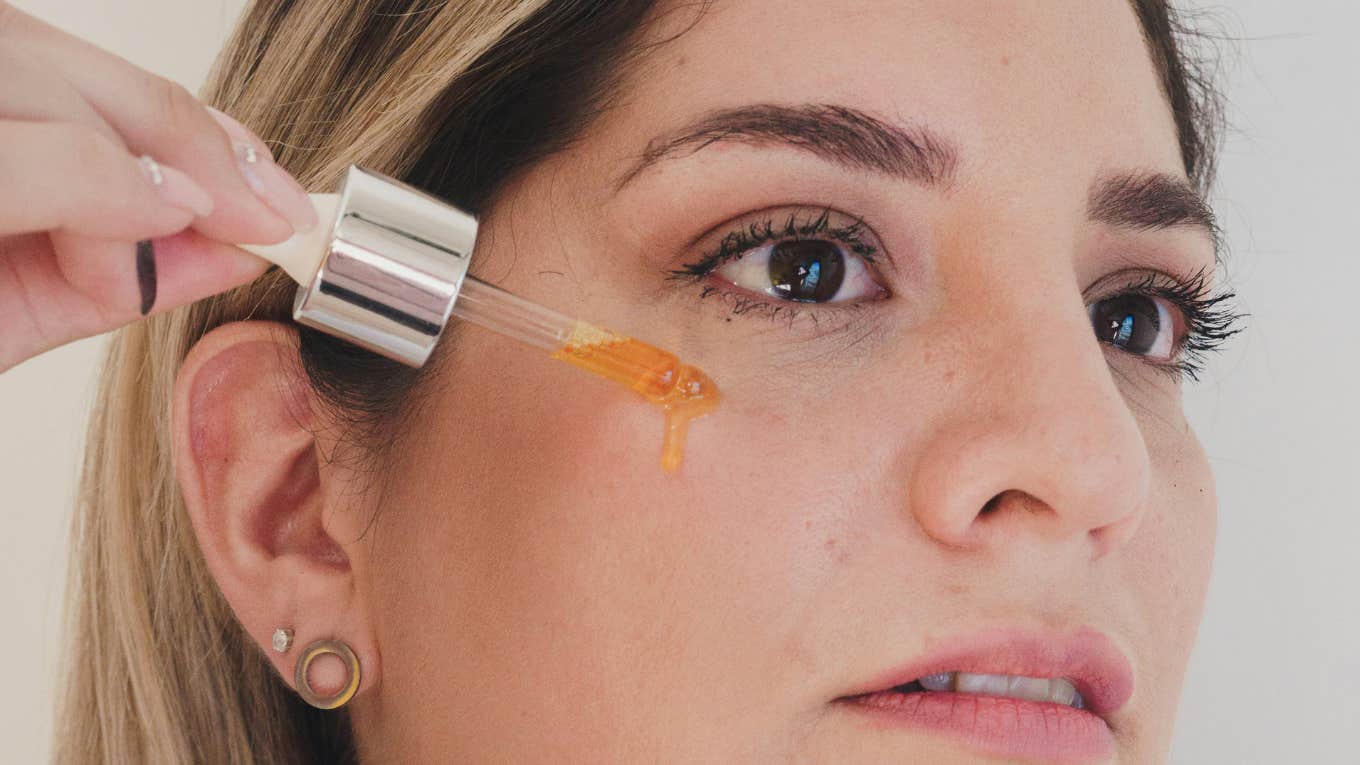People Who Age Backwards Quit This Chemical 10 Years Ago And It Shows On Their Skin
Get everyone wondering how you look so young.
 Eduardo Barrios | Unsplash
Eduardo Barrios | Unsplash "You are 53 years old? You don’t look at day over 40." I hear this all the time. After my daughter was born, 23 years ago, I developed an allergy to sugar.
Eating even a small amount of sugar made me sick for days. When I ate sugar, it was like I had ingested poison and had the worst hangover ever. As a result, 23 years ago, I quit sugar and also stopped eating many starches.
Today, I walk down the NYC streets, and guys of all ages check me out. I am 5’9" and 130lbs — a very healthy weight, I believe, because I don’t eat sugar.
People who age backwards quit sugar, and it shows on their skin.
 Ground Picture / Shutterstock
Ground Picture / Shutterstock
I eat whatever else I want — in moderation — and I do yoga every day. While I know that guys check me out because I look good in my jeans, I also started wondering if avoiding sugar was one of the reasons my face is still relatively unlined, and that it usually has a bit of a glow to it, even though I never wear make-up.
When I start to wonder about something, I start doing my research. How did not eating sugar affect the slower aging of my skin? What I learned was amazing.
To start, sugar comes in many forms. The forms most familiar to women are the added sugars that are found in our wine, our chocolate, our ice cream, our soda, and our coffee.
What many people don’t know is that sugar is also hidden in starchy foods like bread, potatoes, and pasta. It is also found in packaged foods like condiments and crackers.
Consuming any of these types of sugars can affect the health of our skin. So how does that sugar in your morning coffee, the bag of chips you ate at midday, or the bowl of ice cream you consumed before bed affect your skin?
When one has a lot of sugar in their diet, something called glycation occurs, a process that can result in a significant amount of aging in the skin.
During glycation, digested sugars attach permanently to proteins in the skin to form different, more dangerous proteins called AGEs (advanced glycation end products).
The more sugar you eat, the more AGEs are formed. Collagen and elastin, proteins in the skin that influence firmness and elasticity, are greatly affected by AGEs. The more sugar you eat, the more AGEs are produced, and as a result, your skin becomes dry and brittle, which can cause wrinkles and sagging.
To make matters worse, sugar in your diet can affect how strong your collagen is and can cause hair growth and dark patches on your face and neck. Furthermore, AGEs can leave your skin more vulnerable to sun damage, an issue that is becoming more of an issue daily.
So there you go. That piece of cheesecake that you had after lunch — while it was delicious going down — will show up on your face sometime soon.
Luckily, there are ways to counteract the damage caused by sugar in our diets. The first place to start is from the inside. Watch for hidden sugar in your food.
Sugar is everywhere: It’s in that sweetened yogurt you have for breakfast, the chili sauce that you put on your Pad Thai at lunch, and there is a TON of it in that glass of wine you have with dinner.
Watch out for those sugars and save any sugar ingestion you must have for something yummy like that piece of Chocolate Decadence Cake you love. A tiny piece. Also, eat as much fresh fruit and vegetables as you can because they contain powerful antioxidants that help destroy AGEs.
One mg. of Vitamin B1 and Vitamin B6 daily will help prevent AGEs from being created in the first place. Vitamin C is also important. You can take it both in supplement form and apply it topically.
Many skin products can help you deal with the effects the sugar in your diet has on your skin.
Look for products that contain retinol, a substance that helps build new collagen. Products containing aminoguanidine and allicin are also important because they help block the formation of AGEs. Alpha Lipoic Acid has an anti-glycating effect and anti-inflammatory properties.
All of these products are available at your pharmacy, over the counter. So, I know what your next question is: "Can I continue to eat the way that I do, take a few supplements, buy some expensive face cream, and maintain my youthful appearance?"
I am sorry to say it, but alas, no. I am not saying that you need to say goodbye to ice cream and chocolate cake forever, but I am saying that modifying your diet is important to prevent the damage that sugar can cause to your skin.
Making an effort to look out for hidden sugars in your diet will make a huge difference. If you can eliminate those pesky sugars, it will go a long way towards reducing your overall sugar intake.
Stay away from processed foods that are often high in sugar and avoid high fructose corn syrup found in sweetened drinks and packaged baked goods. Educate yourself on the food you put in your body so that you can control the effect that it has on your face.
And I am going to say it again. You have probably heard it 3,359,009 times — increase the amount of fresh fruit and vegetables in your diet. More than anything, the antioxidant content and nutritional value of fresh food will help offset the effects of those pesky AGEs.
Personally, because I am not a huge fan of vegetables, I have one fresh veggie shake a day, sweetened only with a little fresh fruit, and/or applesauce. I know that by doing so I am feeding my skin the food it needs to keep people talking about how young I look.
And I have to admit, although I act as if I don’t, I love being told how young I look. It’s probably one reason why I strut my stuff so proudly on the streets of NYC.
Mitzi Bockmann is a NYC-based Certified Life Coach who works with individuals who strive to heal their toxic relationships so they can have their happily ever after. Mitzi's bylines have appeared in The Good Men Project, MSN, PopSugar, Prevention, Huffington Post, Psych Central, among many others.

